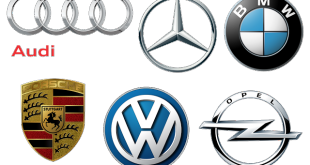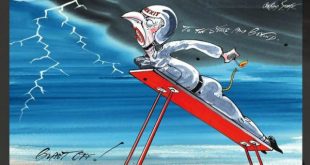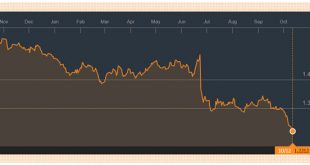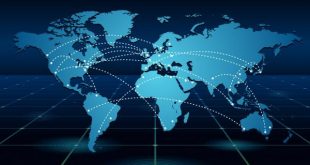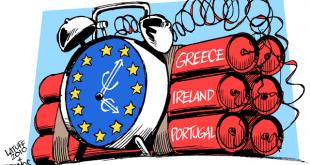The EU has laid out its negotiating strategy for Brexit. Well, not officially yet, of course - the letter triggering Article 50 won't be delivered until tomorrow, 29th March. But as is its wont, it has made its intentions clear in the press.In an op-ed in the FT, Michel Barnier, the EU's chief negotiator, has stated in no uncertain terms how he expects the negotiations to proceed. He identifies three crucial issues that must be resolved before there can be any discussion of future trading...
Read More »Of cars and tariffs, and Brexit fantasies
"The Germans won't want tariffs on their car exports to the UK", said my father the other day.I have to agree. No-one likes tariffs, especially when they are used to having none. But it was his next comment that made me pause. My father's idea is that the EU will allow the UK to have tariff-free access to the EU's markets after Brexit in order to placate the powerful German car manufacturing lobby. He's not alone in this view: it has been repeatedly stated by Brexit promoters, both during...
Read More »Game theory in Brexitland
"No deal for Britain is better than a bad deal", says Theresa May. Her Brexit sidekick David Davis appeals to MPs not to "tie her hands". And that master of flannel, trade secretary Liam Fox, says that leaving without a deal would be "not just bad for the UK, it's bad for Europe as a whole".These three statements sum up the hopes of the Brexiteers. The idea seems to be that if the UK adopts a really strong stance in its forthcoming negotiations with the EU, the Europeans will be so...
Read More »The return of machismo
2016 has been an extraordinary year. Memorable for so many things: celebrity deaths, the melting of Arctic sea ice, Trump, Brexit, terror attacks in Europe, drownings in the Med, destruction in Syria. The largest movement of people in recorded history. And - perhaps - the overturning of the political & economic paradigm established by Reagan and Thatcher. Are we seeing the end of elites and the triumph of the common man? Was the Brexit vote really the victory of "ordinary people"? Was...
Read More »Brexit, trade and echoes of the past
Brexit supporters have been severely critical of the OBR for its grim outlook for the UK post Brexit. The OBR is by no means the most negative of the professional forecasting bodies, and historically its forecasts have tended to err on the side of optimism, as Duncan Weldon observes. But it struggles to find anything good to say about post-Brexit Britain. In particular, it is distinctly negative about the future for Britain's external trade.Brexit is above all a shock to trade, since its...
Read More »The dominance of Brexit
Some people have been saying that sterling's fall has nothing to do with the Brexit vote. Sterling was already falling before the vote, they say, because of the UK's wide and growing current account deficit. So I thought I would fact check this.Here is the UK's current account deficit since 1987, courtesy of ONS: Well, ok, it has rarely been anywhere near balance in the current century, and it has been trending downwards since 2011.Now let's look at sterling. Here is sterling's...
Read More »The currency effects of Brexit
Sterling is falling. Predictably, the financial press describe its slide as a "pounding" and gleefully tell us that sterling is the worst-performing currency after the Argentinian peso.But some people are cheering. Falling sterling is good for exports, isn't it? So if the pound keeps falling, the UK's large trade deficit will start to shrink, reducing the UK's dependence on external financing and hence its vulnerability to a "sudden stop".Sadly, it's not that simple. Falling sterling is not...
Read More »Why is global trade so weak?
Global trade is awful. Really, it is. For the last five years, trade volumes have been growing at their slowest sustained rate since the early 1980s. Here's a horrible chart from the World Trade Organisation's latest forecast: And in the last year, things have got worse: Import demand of developing economies fell 3.2% in Q1 before staging a partial recovery of 1.5% in Q2. Meanwhile, developed economies recorded positive import growth of 0.8% in Q1 and negative growth of -0.8% in Q2....
Read More »Some unpleasant trade realities
Well, this is fun. YouGov has asked the public which countries the UK's new trade negotiators (if and when they are recruited) should prioritise in their quest for free trade deals.Unsurprisingly, the US and the EU (considered as a whole trading bloc) came top of the list. But as ever, the devil is in the detail. These charts show the difference between the public's perception of the importance of a country versus its exports and GDP rankings: Now, of course the exports ranking is the...
Read More »A plan to turn the Euro from zero to hero
Guest post by Ari Andricopoulos It is difficult to read the history of inter-war Europe and the US without feeling a deep sense of foreboding about the future of the Eurozone. What is the Eurozone if not a new gold standard, lacking even the flexibility to readjust the peg? For the war reparations demanded at Versailles, or the war debts owed by France and the UK to the US, we see the huge debts owed by the South of Europe to the North, particularly Germany. The growth model of the...
Read More » Heterodox
Heterodox


